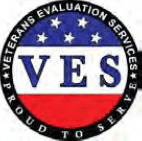What To Expect As A New VES Physician
As a Veteran founded business, we care deeply about our mission. Veterans Evaluation Services (VES) partners with the Department of Veterans Affairs to fulfill President Lincoln’s promise “To care for him who shall have borne the battle, and for his widow, and his orphan” by serving and honoring the men and women who are America’s veterans.”
We serve Veterans by conducting disability exams for conditions that are a direct result of or aggravated by their time in the military, allowing them to obtain hard-earned benefits in service to our country. VES supports 6,000 active providers serving more than 750,000 Veterans every year.
Together, we can fulfill President Lincoln’s promise. We look forward to serving Veterans around the world in partnership with you.
The responsibility of a VES examiner includes assessments of patients, and may include the diagnosis of illness and physical conditions. Prescriptive authority is not considered part of our providers’ scope of practice.
1) How will I learn how to perform compensation and pension exams?
VES offers several layers of support to providers including in-person training centers, clinical success coaching, and pre-exam preparation sessions. All providers are strongly encouraged to attend in-person training available at a designated training center. The training center is a week-long course designed to demonstrate how your clinical skills apply to evaluating a veteran.
2) How long does it take to become proficient in performing compensation and pension exams?
Depending on the frequency of exams, it generally takes between three and six months to become proficient. To reduce the time to become proficient in exams, it is strongly recommended you see veterans two or more days per week, if possible.
3) How will I know if my exams are acceptable?
VES has a dedicated team of trained quality analysts that review and provide feedback for each report that requires clarification or addenda. If no correspondence is received from a quality analyst, the report is acceptable.
4) What skills should I brush up on before starting an exam?
Skills such as range of motion testing with a goniometer, muscle strength testing, car- diovascular condition diagnoses, respiratory condition diagnoses, neurological condi- tion diagnoses, and reviewing results of METS testing are all beneficial.
5) Do I have to complete Disability Medical Assessment (DMA) training every year? As long as you complete at least one case annually, the training certificates are valid for five years. After five years, you must take a recertification course.
1) How comfortable with the use of technology do I need to be?
Providers should be comfortable using an internet browser and navigating an online portal. Most exams require extensive online medical record reviews and the exam report for a veteran’s claim is completed through the online portal. Training is provided during the on-boarding process and support services are always available.
2) Do I need my own computer?
Yes, you will need your own computer to access the online portal, complete exams, submit reports, and perform record reviews.
1) Do I need my own facility or where will I conduct exams?
You do not need your own facility. VES is able to provide a location in most parts of the country. However, having your own facility is a benefit because it removes a layer of difficulty when coordinating the schedules between providers and Veterans.
2) Does the facility have to be ADA compliant?
Yes, all facilities should comply with ADA regulations and guidelines and must have the following accommodations: designated disabled parking, a ramp from the parking lot to the sidewalk, an elevator if stairs are present, disabled accessible restrooms with grab bars, and a fire extinguisher with current date of inspection. Specific require- ments will be outlined in your Credentialing Packet.
1) How much time should I block to perform an exam?
Time depends on the number of conditions you are evaluating in the exam and your level of experience. In general, an experienced provider will plan on spending up to thirty minutes for every three completed DBQs during an exam. For example, an exam with six DBQs would generally take one hour to complete while an exam with twelve DBQs would take two hours to complete.
There are certain DBQs that are separate from this estimate and take longer to com- plete. VES takes this information into account when scheduling exams to ensure enough time is given to complete an exam and also provide a great experience for the Veteran. The following chart provides estimated exam times for an experienced pro- vider; however, new providers are given additional time to complete an exam in ac- cordance with proficiency and exam duration preference.
General Medical Exams
#/Type of DBQ
Minimum Time
#/Type of DBQ
Minimum Time
1 – 3
30 Min
13 – 15
2.5 Hours
4 – 6
1 Hour
16 – 18
3 Hours
7 – 9
1.5 Hours
19 – 21
3.5 Hours
10 – 12
2 Hours
Diabetes Mellitus
1 Hour
2) How much time does it take to prepare for an exam?
Preparation involves a record review and for new providers, it can take between ten and twenty minutes to prepare for an exam. This process involves becoming accustomed to the location of pertinent information within records. Experienced providers typically spend little to no time preparing for an exam.
3) How much time does it take to complete an exam report?
Completing questionnaires can take between ten and twenty minutes depending on the complexity of the case and volume of pertinent medical records. Exams that have DBQs covering multiple specialties, in excess of ten conditions, can take between thirty minutes to an hour to complete.
4) How will exams be added to my schedule?
Exams can be added to your schedule individually with your consent or automatically through block time. You have the option, but are strongly encouraged to offer block time with designated hours each week. Our Schedulers will work to match the time you provide.
5) What is the expected exam report turn-around time?
Providers should submit their completed report within forty-eight hours of the exam, as outlined in your Management Services Agreement.
6) Is this a full-time role?
Factors such as incoming exam volume, acceptable report quality, and timeliness of submitted reports (generally within two days) can lead to potential for a full time equiv- alent role. Although volume cannot be guaranteed, the possibility for receiving addi- tional work is greater based on a provider’s strengths in the above along with ease of scheduling exams,
Veterans Evaluation Services
Page 4
Compensation
Malpractice Insurance
1) Do I receive a W2 or 1099?
As an Independent Contractor, you will receive a 1099.
2) Do I need to give a notice before ceasing my work?
You are under no obligation to provide availability. VES does require providers to see through any exams already on their schedule as well as complete any outstanding reports or requests for clarification. We expect that you will continue to offer the amount of time agreed upon during the recruiting process.
1) When will I be compensated for the exams I submit to VES?
Please speak with your Medical Group.
1) Do I need to have my own professional liability/malpractice insurance?
Yes. All providers are required to carry at least the minimum malpractice or profes- sional/general liability insurance that is needed within your state.
Contracting

